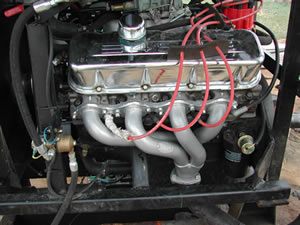LPG Spark Ignition:
- Review of LPG spark ignition equipment compliance with EPA and CARB regulations.
- Review of record keeping policy for compliance with annual required reporting.
- Review of current idling policy and disclosure requirements including field audits to insure compliance.
- Review of fleet retirement options vs. the fiscal impact of emissions control technology being installed to meet fleet compliance. Cost analysis of retrofit options vs. book value, depreciation schedule, useful life and salvage value for equipment being considered for retrofit.
- Review and recommendations of BACT (best available control technology) including review of control technology manufacturers (price, track record of success with particular application, engineering and service staff able to assist, serviceability of device, etc).
- Quantifiable emissions reduction figures achievable with BACT.
- If applicable, review and sourcing of grants and incentives to help offset the cost of alternative fuels and or emission control devices.
- Quantifiable emission reductions enabling your company to offer a "certified Eco-friendly" or "Green" solution to your customer base.
- 50% - 95% reduction possible for Particulate Matter 10 (PM10), Oxides of Nitrogen (NOx), Hydrocarbons (NC) and Carbon Monoxide (CO) using recommended emissions control technology.
- Marketing Strategies to utilize your quantifiable "green profile" to your customer base.
- Control Technologies available for achievement of reduction strategies (Rasmussen Emissions consulting will conduct the proper research and analysis of your application).
- Catalytic Converters
- Particulate Filters
- Evaporative Emission Controls
- Engine / Fuel Management
- Thermal Management Options
- Enhanced Combustion Options
- NOx, Oxygen and Temperature Sensors
